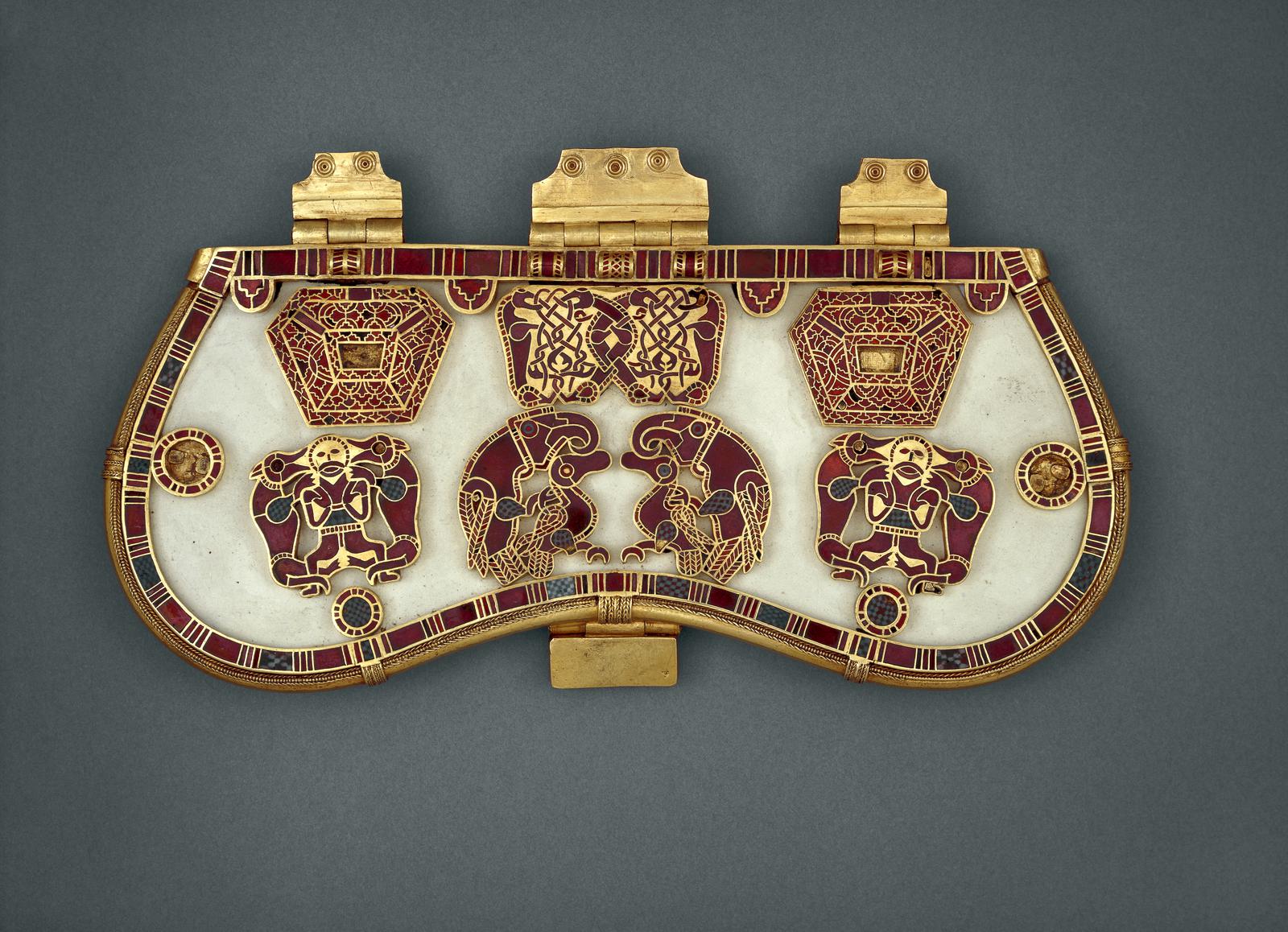Gallery:
Sutton Hoo
Room / Case / #
41 / 1 / SG
Trading for exquisite art
Rus, Viking or Norse people are known to have been fur and slave traders with Constantinople in the 9th C, but this exquisite gold purse lid, which would have originally been mounted on ivory or bone and connected to a leather purse, is early 7th C and Anglo Saxon in style. It also hints at trade, tribute, or theft with Byzantium.
Techniques used on this lid, gold granulation, inlaid garnet, milleflori glass mosaic and cloisonné are techniques that were common in the Eastern Mediterranean countries and the confronted animal motif was also prevalent in this area. The garnets came from Sri Lanka. Also in the same find a 6th C silver platter is clearly Byzantium and some bitumen has been analysed and shown to come from Syria. This lid is part of the very extensive Sutton Hoo treasures discovered in 1939 when the land owner had archaeologists investigate several of the 18 very visible burial mounds on her property in Suffolk. The grounds are now owned by the National Trust. This lid is about 20cm long.
If you are looking at the purse lid your next gallery, The Islam Gallery, number 42, is on your right.

